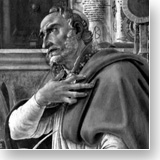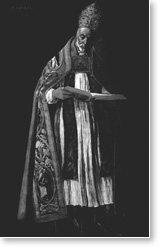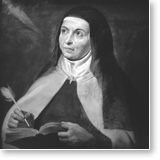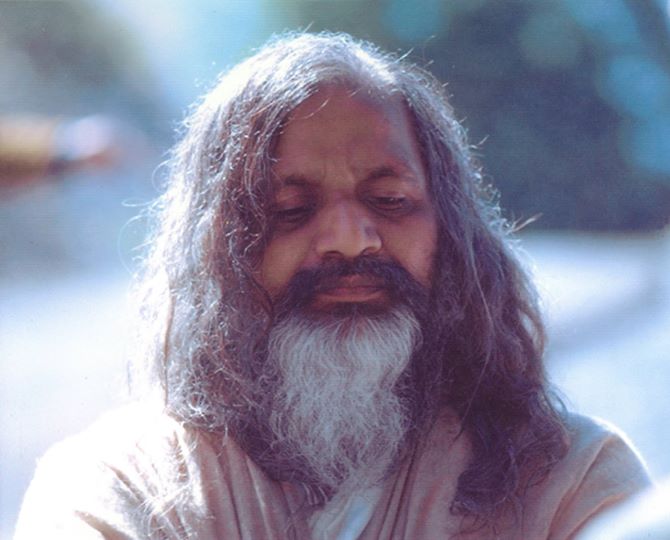Jesus was once asked when the kingdom of God would come. The kingdom of God, Jesus replied, is not something people will be able to see and point to. Then came these striking words: “Neither shall they say, Lo here! or, lo there! for, behold, the kingdom of God is within you.” (Luke 17:21) With these words, Jesus gave voice to a teaching that is universal and timeless.
Look into every great religious, spiritual, and wisdom tradition, and we find the same precept — that life’s ultimate truth, its ultimate treasure, lies within us.
As Jesus made unambiguously clear, we can experience this inner treasure — and no experience could be more valuable. “But seek ye first the kingdom of God and His righteousness,” he declared, “and all these things shall be added unto you” (Matthew 6:33). From this interior plane of life, he is saying, we will gain all that is needful.
This inner treasure of life has had many names. Plato refers to it as the Good and the Beautiful, Aristotle as Being, Plotinus as the Infinite, St. Bernard of Clairvaux as the Word, Ralph Waldo Emerson as the Oversoul. In Taoism it is called the Tao, in Judaism Ein Sof. Among Australian aborigines it is called the dreamtime, among tribes of southern Africa Hunhu/Ubuntu. The names may differ, but the inner reality they point to is one and the same.
In every case, it’s understood that this inner, transcendental reality can be directly experienced. This experience has likewise been given different names. In India traditions it is called Yoga, in Buddhism Nirvana, in Islam fana, in Christianity spiritual marriage. It is a universal teaching based on a universal reality and a universal experience.
Over the past 20 centuries, leading Christian figures have written extensively on this inner kingdom of God and their personal experience of it. Here are just a few brief excerpts from a collection of many:
St. Gregory of Nyssa (c. 335–394 • Turkey)
Gregory of Nyssa, an early Christian theologian, was one of the four great fathers of the Eastern Church and served as Bishop of Nyssa, in the center of modern-day Turkey.
[The soul] leaves all surface appearances, not only those that can be grasped by the senses but also those which the mind itself seems to see, and it keeps on going deeper until by the operation of the spirit it penetrates the invisible and incomprehensible, and it is there that it sees God. The true vision and the true knowledge of what we seek consists precisely in not seeing, in an awareness that our goal transcends all knowledge. . . . [1]
St. Augustine (354–430 • Algeria)
 St. Augustine, regarded as one of the towering intellectual geniuses in history, wrote more than a thousand works on philosophy, psychology, theology, history, political theory, and other subjects. His Confessions, from which the following passage is taken, has remained a popular and influential work for almost 1,600 years.
St. Augustine, regarded as one of the towering intellectual geniuses in history, wrote more than a thousand works on philosophy, psychology, theology, history, political theory, and other subjects. His Confessions, from which the following passage is taken, has remained a popular and influential work for almost 1,600 years.
I entered into the innermost part of myself. . . . I entered and I saw with my soul’s eye (such as it was) an unchangeable light shining above this eye of my soul and above my mind. . . . He who knows truth knows that light, and he who knows that light knows eternity. Love knows it. O eternal truth and true love and beloved eternity! [2]
And I often do this. I find a delight in it, and whenever I can relax from my necessary duties I have recourse to this pleasure. {I experience] a state of feeling which is quite unlike anything to which I am used — a kind of sweet delight which, if I could only remain permanently in that state, would be something not of this world, not of this life. But my sad weight makes me fall back again; I am swallowed up by normality. [3]
St. Gregory the Great (540–604 • Italy)
 Born into an eminent Roman family and heir to a large fortune, Gregory decided to become a monk. After he became Pope at the age of 50, he devoted himself to social causes, the first pope especially known for doing so. He reformed the mass and introduced the ritual plainsong known today as the Gregorian chant. He was also a noted theologian. His book, Morals on Job, from which the following passage is taken, influenced religious thought for centuries.
Born into an eminent Roman family and heir to a large fortune, Gregory decided to become a monk. After he became Pope at the age of 50, he devoted himself to social causes, the first pope especially known for doing so. He reformed the mass and introduced the ritual plainsong known today as the Gregorian chant. He was also a noted theologian. His book, Morals on Job, from which the following passage is taken, influenced religious thought for centuries.
The mind of the elect . . . is frequently carried away into the sweetness of heavenly contemplation; already it sees something of the inmost realities as it were through the mist . . . it feeds on the taste of the unencompassed Light, and being carried beyond self, disdains to sink back again into self. . . .
Sometimes the soul is admitted to some unwonted sweetness of interior relish, and is suddenly in some way refreshed when breathed on by the glowing spirit. . . .
When this is in any way seen, the mind is absorbed in a sort of rapturous security; and carried beyond itself, as though the present life had ceased to be, it is in a way remade in a certain newness [it is refreshed in a manner by a kind of new being . . . ]. There the mind is besprinkled with the infusion of heavenly dew from an inexhaustible fountain. [4]
Johannes Tauler (1300–1361 • France)
Johannes Tauler was one of the most influential German spiritual writers of the 1300s. Martin Luther honored Tauler as a primary influence, and Tauler has exerted a profound influence on religious thought ever since. As one scholar remarked, “Tauler presents the Christian tradition in its purest form.” [5]
The soul has a hidden abyss, untouched by time and space, which is far superior to anything that gives life and movement to the body. Into this noble and wondrous ground, this secret realm, there descends that bliss of which we have spoken. Here the soul has its eternal abode. Here a man becomes so still and essential, so single-minded and withdrawn, so raised up in purity, and more and more removed from all things. . . . This state of the soul cannot be compared to what it has been before, for now it is granted to share in the divine life itself. [6]
St. Teresa of Avila (1515–1582 • Spain)
 St. Teresa was one of the greatest women of the Roman Catholic church. Her books are considered masterpieces. St. Teresa initiated the Carmelite Reform, which restored the original contemplative character of the Carmelite order. In 1970 she was Doctor of the Church — one of just 33 individuals, and the first woman, to be so honored by the Catholic church.
St. Teresa was one of the greatest women of the Roman Catholic church. Her books are considered masterpieces. St. Teresa initiated the Carmelite Reform, which restored the original contemplative character of the Carmelite order. In 1970 she was Doctor of the Church — one of just 33 individuals, and the first woman, to be so honored by the Catholic church.
My soul at once becomes recollected and I enter the state of quiet or that of rapture, so that I can use none of my faculties and senses. . . .
Everything is stilled, and the soul is left in a state of great quiet and deep satisfaction. [7]
From this recollection there sometimes springs an interior peace and quietude which is full of happiness, for the soul is in such a state that it thinks there is nothing that it lacks. Even speaking — by which I mean vocal prayer and meditation — wearies it: it would like to do nothing but love. This condition lasts for some time, and may even last for long periods. [8]
Thomas Merton (1915–1969 • United States)
After completing a masters degree in English at Columbia University in New York, Merton entered the Abbey of Our Lady of Gethsemani, in Kentucky, as a monk. He was later ordained as a priest. He published more than 15 books of spiritual writings, poetry, fiction, and essays, and participated in movements for social justice and peace. He took great interest in the religions of the East, particularly Zen, for the light they shed on the depth of human consciousness. From the seclusion of the monastery, he exerted a worldwide influence.
In the following passage Merton describes the experience of “contemplation.” He uses the term not in the current sense (thinking intently about something) but in its older sense, to describe the experience of transcending thought:
The utter simplicity and obviousness of the infused light which contemplation pours into our soul suddenly awakens us to a new level of awareness. We enter a region which we had never even suspected, and yet it is this new world which seems familiar and obvious. The old world of our senses is now the one that seems to us strange, remote and unbelievable. . . .
A door opens in the center of our being and we seem to fall through it into immense depths which, although they are infinite, are all accessible to us; all eternity seems to have become ours in this one placid and breathless contact. . . .
You feel as if you were at last fully born. [9]
A technique for transcending
Readers who practice the Transcendental Meditation technique will recognize in these passages clear descriptions of transcending — the natural phenomenon of mental activity settling down, like waves settling on an ocean. Consciousness reaches its most silent state, serene and unbounded. We experience pure consciousness. We realize that this is our true Self, beyond time and space, infinite and eternal.
We now know, from extensive scientific research studies, that during Transcendental Meditation practice, during the experience of transcendence, brain functioning becomes integrated, physiological activity settles down, and one experiences a unique state of restful alertness, a fourth major state of consciousness Maharishi calls Transcendental Consciousness.
Here is how Maharishi describes the technique:
Transcendental Meditation is just the simple technique of going within, and there you are! To go within is so simple; it is so natural for every man to go to a field of greater happiness. . . .
And how can it be simple? The question arises because constantly I am emphasizing its simplicity. All this message of the inner life and outer life is not new, the same age-old message of the Kingdom of Heaven within. “First seek ye the Kingdom of God and all else will be added unto you.” It is the same age-old, centuries old message, but the message emphasizes today that it is easy for everyone. Without exception, born as man, every man has the right, the legitimate right to enjoy all glories that belong to him, all glories of the inner world and all glories of the outside world. And here is a process every man can directly experience for himself. [10]

References
[1] Herbert Musurillo, From Glory to Glory (New York: Charles Scribner’s Sons, 1961), 118.
[2] The Confessions of St. Augustine, trans. Rex Warner (New York: New American Library, Mentor Books, 1963), 149.
[3] Warner, 247-248.
[4] Quoted in Cuthbert Butler, Western Mysticism (New York: E.P. Dutton & Co., 1923), 105.
[5] Maria Shrady, “Introduction,” Johannes Tauler: Sermons, trans. Maria Shrady (New York: Paulist Press, 1985), xvi.
[6] Tauler: Sermons, 89–90.
[7] The Complete Works of St. Teresa of Jesus, trans. E. Allison Peers (1946; reprint, London: Sheed and Ward, 1978), 306–307.
[8] Teresa of Avila, Complete Works St. Teresa of Avila (London: Continuum International Publishing Group, 2002) 104. Also in St. Teresa of Avila, The Way of Perfection, trans. & ed. E. Allison Peers (Garden City, New York: Image Books, 1964, 328.
[9] Thomas Merton, New Seeds of Contemplation (1962; reprint, New York: New Directions, 1972), 226.
[10] Thirty Years Around the World: Dawn of the Age of Enlightenment (The Netherlands: MVU Press, 1986), 284-285.





